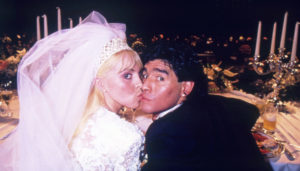Because there is nothing Americans will not politicise, marriage is now at the heart of a culture war.
On the traditionalist side, a loose assortment of classical conservatives, terminally online reactionary trad types, and the odd dissident feminist have coalesced around the idea that the sexual revolution has led to widespread malaise in society generally and among women particularly, for which marriage is the — or at least, a — cure. The more reasonable pundits point to the benefits of wedlock when it comes to our health, happiness, and ability to provide a stable family structure in which to raise children. The kookier tradfolk suggest that modern women have been hoodwinked by feminism into a barren existence, squandering their potential — that is, their biological imperative to become wives and mothers — in the frivolous pursuits of career, pop culture, and cat ownership. As conservative commentator Matt Walsh recently complained, the women who imagine themselves to be single and content are just “too stupid to realise how depressing this is”.
On the progressive side, meanwhile, marriage has become synonymous with misery: an institution that demands women sacrifice their professional ambitions and passions alike, putting themselves second — and picking up some unappreciative schlub’s dirty socks — for the rest of their lives. This perspective was recently articulated in The Cut by Rebecca Traister, who lamented that “hard-right commentators and politicians” were championing marriage not for the betterment of society, but to worsen the prospects of women who finally had equality within reach: “reversing the progress — from legal abortion to affirmative action to no-fault divorce — that has enabled women to have economic and social stability independent of marriage”.
In a worldview where men are portrayed as burdensome creatures who ask too much, offer too little, and inevitably fail to deserve the female companionship they crave, to eschew marriage becomes a form of feminist empowerment, the only path to a fully actualised life. At its extremes, this perspective is accompanied by the sense that men in general are a waste of one’s time and hot girl potential, and that any woman who thinks otherwise just hasn’t found the right television series and/or brand of vibrator.
The result is a zero-sum rhetorical hellscape in which marriage is one of two things. For its supporters, it is the last, best hope of a society on the brink of decline and disaster. For its detractors, it is an insidious ploy by reactionary dinosaurs to catapult us back to a less enlightened paradigm, just as we were nearing the utopian promise of a brave new world.
It’s hard not to notice a certain amount of horseshoe effect in play here, not just in each side’s notion of marriage as first and foremost a proxy for power, but also in their equally rigid ideas of what happiness actually looks like. The picture of female fulfilment is a caricature in either case. The anti-marriage camp celebrate the high-achieving, stiletto-heeled girlboss. Their opponents are in thrall to the barefoot, pregnant homesteader. And in either case, the proffered vision of womanhood has a pre-packaged-for-social-media feel to it: it is a lifestyle, rather than a life.
Perhaps this was inevitable at a moment when the basic tenets of human existence are not just politicised, but public and performative — and hence subject to endless hacking, tweaking, and optimisation. To participate in the attention economy requires treating your own life as not just a search for personal satisfaction but a source of content to be consumed by other people; you are writing, directing, and starring in a story about yourself, the main character of the universe. And when marriage becomes part of the plot, then of course we begin to think of potential spouses not as partners but supporting actors, bit players in the journey to becoming one’s most majestic, fully actualised self.
Obviously, this has certain implications for heterosexual women, for whom living with a man and living one’s best life are so often presented as mutually exclusive. But men aren’t immune from it, either: not long ago, I witnessed a friend in his 30s unhappily contemplating the ways his life had changed after moving in with a girlfriend, his complaints an unwitting and uncanny echo of so many feminist takes on the burdens of having a man around. The girlfriend’s presence in his life meant compromise, interruptions, distractions; another person’s needs and desires suddenly had to be factored in. It felt like a loss, he said — of time, energy, productivity.
But was it? Is it? Is it actually the ne plus ultra of human happiness to live unattached, the better to do exactly what you want exactly when you want to? It seems so juvenile, a child’s idea of fulfillment: to do whatever you want, and none of the things you don’t want, forever and ever, until death. Part of growing up is the realisation that a unilateral life is also a lonely one, that there is value in attachment. To be needed by another living thing — a spouse, a child, a pet, a plant — is a curb on absolute freedom, but there’s joy in it, too.
Progressives tend to cite women’s liberation and the rise of non-heterosexual couplings as positive factors fuelling the decline in marriage rates; less discussed but perhaps equally salient is the contemporary sense that marriage is square and stodgy and hence incompatible with the carefree state of perpetual adolescence in which it is now possible to live long after reaching the age of majority. Millennials aren’t even having midlife crises at the same rate as previous generations, at least in part because they aren’t settling into marriage, parenthood, home ownership — in short, into the kind of commitments that trigger existential dread about the road not taken.
Of course, every entry into this debate — including this one, at least up until this moment — tends to ignore the practical issues that prevent people from getting married. Some of this, like the unaffordability of housing, is an economic problem. But some of it, I think, is fear. The fear of growing up, and getting old. The fear of doing something so serious it can’t be easily undone or written off as a childish error. The fear of building a whole entire world with another person, and all the terrible vulnerability that entails — a vulnerability which has always been scary, but perhaps particularly so for a generation that equates emotional discomfort with being unsafe.
It’s telling that even the most pro-marriage arguments tend to be data-driven, hanging on the pragmatic rather than the romantic. Much has been made of a study by economist Sam Peltzman, which charts American happiness levels against declining marriage rates. The benefits of wedlock are presented as a matter of simple mathematics; the marriage sceptics, meanwhile, say that its proponents have simply mistaken cause for effect. “For those who have money, marriage is likely to help them to have even more of it; for those who find a good match, there are many emotional and societal rewards of partnership,” Rebecca Traister writes. “But you need stability first; you need the money, jobs, housing, and health care first.”
Notably, there’s not much room in this paradigm for love, nor for the couple who has nothing figured out, and no idea what kind of life they want to live, except that they’d like to live it together. The progressive idea seems to be that even in the best-case scenario, marriage should still be understood as the decorative flourish on top of a life, rather than the foundation on which to build one. But to understand marriage in terms of this cost-benefit analysis — What’s in this for me? — is to misunderstand it. Even the more conservative arguments in its favour — that married couples can expect better health, greater happiness, and a more stable environment in which to raise children — skate across the surface of the institution instead of plumbing its deeper meaning.
The pro-marriage camp has become associated with its loudest and most deranged voices, demanding an end to no-fault divorce, or a return to the dark ages of domestic misery — so that even more moderate commentary, such as Melissa Kearney’s recent book The Two-Parent Privilege, is prone to interpretation by critics as a call for forced cohabitation and legal entanglement for parents who do not want this. But one needn’t endorse those proposals to imagine a world in which that entanglement is something more people do want, and in which its deeper meaning is something we acknowledge in earnest. Enough pretending that we’re all too cool and ambitious and self-actualised to care about falling in love and building a life with someone; enough with the app-driven illusion that human connection is cheap and easy to find. A better conversation about marriage would be one that recognises how much of its value lies in things that can’t be measured or legislated, in the realm of the intangible. Intimacy. Companionship. The presence and rhythm of another heart beating beside you in the dark.
Disclaimer
Some of the posts we share are controversial and we do not necessarily agree with them in the whole extend. Sometimes we agree with the content or part of it but we do not agree with the narration or language. Nevertheless we find them somehow interesting, valuable and/or informative or we share them, because we strongly believe in freedom of speech, free press and journalism. We strongly encourage you to have a critical approach to all the content, do your own research and analysis to build your own opinion.
We would be glad to have your feedback.
Source: UnHerd Read the original article here: https://unherd.com/




